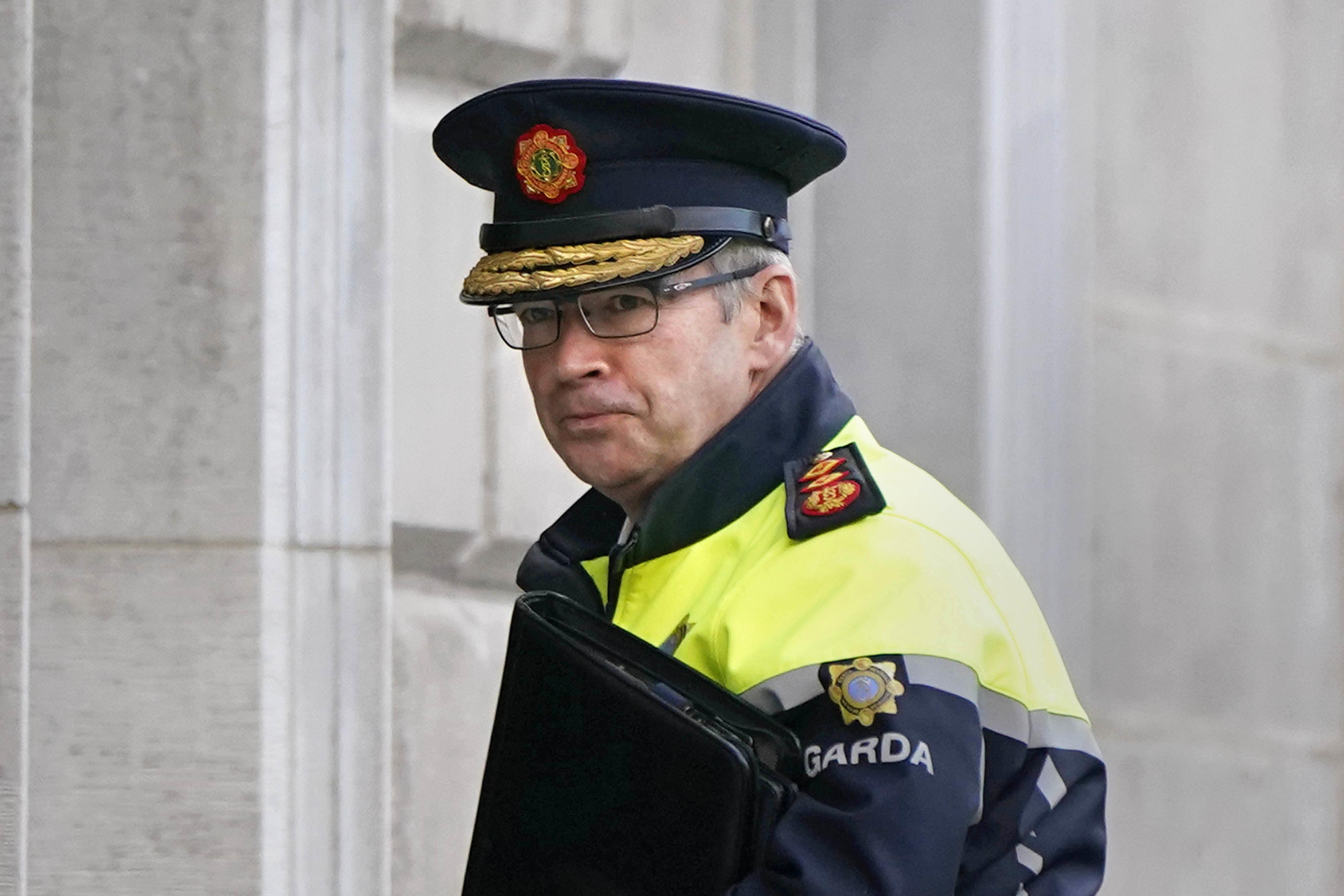No intelligence system would have predicted scale of Dublin riot – Garda chief
Drew Harris made the comments as he appeared before Ireland’s Policing Authority for questioning over the events of November 23.

Your support helps us to tell the story
From reproductive rights to climate change to Big Tech, The Independent is on the ground when the story is developing. Whether it's investigating the financials of Elon Musk's pro-Trump PAC or producing our latest documentary, 'The A Word', which shines a light on the American women fighting for reproductive rights, we know how important it is to parse out the facts from the messaging.
At such a critical moment in US history, we need reporters on the ground. Your donation allows us to keep sending journalists to speak to both sides of the story.
The Independent is trusted by Americans across the entire political spectrum. And unlike many other quality news outlets, we choose not to lock Americans out of our reporting and analysis with paywalls. We believe quality journalism should be available to everyone, paid for by those who can afford it.
Your support makes all the difference.No intelligence system would have predicted the scale of serious rioting in the heart of Dublin last month, the Garda Commissioner has said.
Ireland experienced its worst rioting in more than a decade on November 23 when gardai came under attack, a Luas tram, a bus and Garda cars were burnt, and some shops were looted in scenes attributed to “far right elements”.
Appearing before a public session of the Policing Authority, Mr Harris said the riot was quelled in an hour and a half when the resources were in place, but he said officers are examining what happened and there will be learning to take on board, particularly around communication, training and equipment.
Some 13 gardai were injured, including three who attended hospital, one of whom suffered a severed toe.
The incident came just hours after a knife attack on young children in the area.
Two water cannon remain on loan from the Police Service of Northern Ireland (PSNI)
Mr Harris, along with Irish Minister for Justice Helen McEntee, faced calls to resign in the aftermath of the riot.
On Tuesday, the Garda Commissioner echoed comments of Policing Authority chair Bob Collins that the young children and their teacher who were attacked earlier in the day should not be forgotten amid what happened later.
Questioned about Garda intelligence, Mr Harris said there was no pre-warning, adding: “No intelligence system would have would have given an indication that that that was going to happen.
“I think the thing was very significant for us was the speed with which information flowed followed very quickly by disinformation, and very disingenuous information designed specifically to stoke tension.
“There’s learning here for us and that’s why we’ve engaged in this operational degree and then the review that we will undertake.
There was a very agile response to an evolving situation on the night, but we just want to make sure that we're well placed should something like this happen again
“So I do think we want to just review our tactics and the equipment that we have available as well.
“We just want to see how well our other equipment actually worked on the night. The shield lines themselves were very robust and did work well and were able to deal with the disorder in front of them and in fact, actually dealt with it very well around making arrests and then the criminal justice response.
“Given that this was in effect spontaneous … there was a very agile response to an evolving situation on the night, but we just want to make sure that we’re well placed should something like this happen again.”
The Garda Commissioner said an operational debrief was carried out into events by Assistant Commissioner Paul Cleary, and he expects a report following that this week.
This is set to inform a review.
Mr Cleary told the Authority that his work had included a feedback questionnaire for gardai involved. He said of 286 members, they received responses from 176, and a community impact assessment report has been requested.
The main issues raised, he said, included equipment, training gaps and communications.
“A lot of the feedback came up in the same areas – around communications equipment, coordination and planning, training and tactics,” he said.
Among the communication difficulties raised was that garda commanders in the control room in Store Street station could not communicate directly with members of the Public Order Unit responding to disturbances and looting because they did not have earpieces.
Mr Clearly said he has recommended that these be installed in garda helmets, and that loudhailers be supplied.